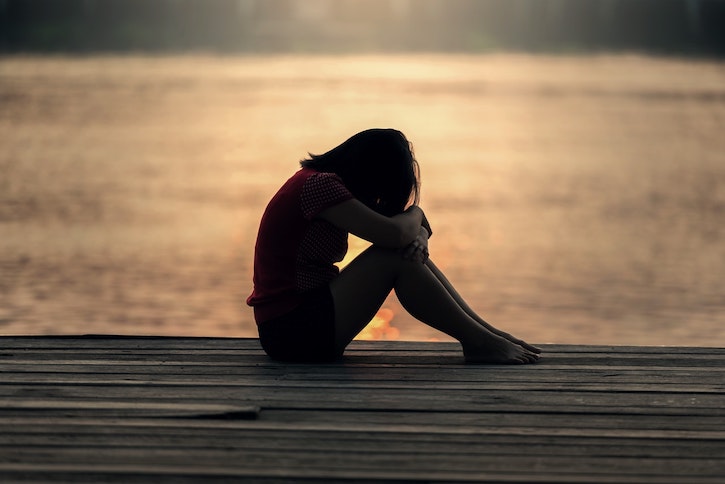Cannabis is a drug which has been classified as illegal in the UK. It is a class B substance, and the possession of cannabis can carry a legal penalty of up to 5 years in prison.
The drug contains two main chemicals, named cannabinoids. These are THC and CBD, and it’s important to understand their impact in order to understand the physical and mental consequences of taking cannabis.
THC is a psychoactive chemical that, when ingested, can cause paranoia, hallucinations, and changes in mood and behaviour. The higher the concentration of THC, the stronger the cannabis is which means it impacts the mental state more strongly.
Once absorbed and metabolised, THC can stay in the body for days, and in heavy users of cannabis, this can increase to weeks.
On the other hand, the cannabinoid CBD can sometimes cause a reduction in anxiety and it has been used in some experimental medical treatments. Cannabis strains with high levels of CBD are less likely to provoke a significant neurological response of hallucinations and behavioural changes.
If you’re looking for help overcoming cannabis addiction, call our admissions team today on 0800 140 4690

In the past three decades, cannabis use among teens has seen a sharp decline. The idea that most teenagers take the drug is a misconception.
Nevertheless, cannabis is still the most frequently used illegal drug in all parts of the UK, and some teenagers do use the drug. Like the general population, the majority of teenagers do not take cannabis, however, a substantial minority have taken cannabis and continue to use it regularly.

Overall, more than 30% of teenagers up to the age of 17 have used cannabis at least once. Young men and boys are more likely to have used the drug than women and girls of the same age: over a third of boys have taken cannabis, compared to a slightly lower 28% of girls.
The use of the drug isn’t confined to older teenagers, and the regular use of cannabis is also prevalent among younger groups of teenagers. The latest figures show that 9% of 15-year-old boys and 8% of 15-year-old girls take the drug at least once a month in England.
These statistics increase among older groups of teenagers, and as a whole 15% of teenagers use the drug at least once a month. This means that around half of teenagers who have taken the drug once will go on to take up regular use of cannabis.
Along with sex, there are several other factors that impact the likelihood of teenage cannabis use. Some of these include the socio-economic status of a teenager’s parents, and ethnicity.
Longitudinal studies have shown that ethnicity plays a substantial role in the likelihood of teenage cannabis use. Young white people are more likely to have taken cannabis at least once and regularly use the drug than teenagers of an ethnic minorities.

Many teenagers who have taken cannabis, or regularly use it, either don’t know or understand the neurological impact that the drug can have. However, the consequences that the drug can have on the teenage brain are widely varied and potentially severe.
The human brain continues to grow into the 20s, and teenagers’ brains are still going through key developmental stages. This means that during their teenage years, people who take cannabis are especially vulnerable to the long-term effects of cannabis use.
Once absorbed into the bloodstream and carried to the brain, the THC in cannabis can disturb and leave lasting impacts on brain development.
Due to their particular vulnerability, one of the consequences that teenagers face, if they use cannabis, is a disruption to the vital connections that neurotransmitters make during the teenage development stage.
Cannabis can also alter the physical shape of the brain if used heavily while the brain is still developing in the teenage years.
Alongside the physical consequences on the brain, psychotic illnesses (e.g., schizophrenia) can be triggered by the use of the drug.
There are several vulnerabilities that are associated with the triggering of schizophrenia, such as the extent of drug use and a genetic vulnerability due to a family history of psychotic illness.
These vulnerabilities become even more likely to trigger schizophrenia when cannabis use begins in the teenage years.
A lot is still unknown about the long-term effect that taking cannabis has on the teenage brain. This is worrying, as the full impact that the drug can have on the development of teenagers and their future, is uncertain.
However, it is known that the drug has a wide variety of negative and potentially dangerous effects.
If you’re looking for help overcoming cannabis addiction, call our admissions team today on 0800 140 4690

Addiction to cannabis occurs in a minority of people who take the drug. Around 10% of cannabis users will become addicted to the substance, while up to 30% will develop some kind of dependence.
If someone begins their use of cannabis as a teenager, the likelihood that they will become addicted to, or dependent upon the drug is increased.

As well as disrupting brain development, potentially triggering schizophrenia, and leading to addiction, cannabis can have wider effects on the life of a teenage user.
The drug is highly associated with a decline in mental capacity, and it can cause a decrease in motivation and a lack of interest in social activities.
On top of this, if the drug is used while the brain is still developing in the teenage years, cannabis can lead to a significant drop in IQ. Research has shown that teenagers who frequently use cannabis throughout their adolescence lose an average of 5.8 IQ points by the time they become an adult.
Partly due to the loss in IQ points, regular teenage cannabis use is widely linked with poor academic performances and higher than-average rates of dropping out of education.
This isn’t exclusively because of IQ, and as the use of cannabis as a teenager also impacts attention span and memory, making it harder to learn new information or complex skills.
Wider mental health issues are also correlated with cannabis usage. Teenagers who take cannabis are more likely to report feelings of depression and anxiety than their peers, and unfortunately, this can develop into a serious issue.
The feelings of depression can make previously enjoyable hobbies uninteresting and boring, which can have a big effect on a teenager’s social life.
Higher instances of suicidal thoughts and feelings are connected to the heavy use of the drug among teens.

89% of teenagers who are receiving professional treatment for drug misuse, are receiving treatment for the misuse of cannabis.
If a teenager is suffering from the effects of misuse of cannabis (whether through addiction, dependency, or negative impact on mental health) it’s advised that professional help is sought as quickly as possible. With intervention, progression away from the worst impacts of cannabis misuse can be achieved.
It is recommended that if a teenager is addicted to cannabis, or if this is suspected, a rehab clinic is contacted. Cannabis addiction can have some nasty and relatively long-lasting withdrawal symptoms, including physical pain, and a rehab clinic can help a teenager to manage those symptoms.
Non-NHS, private rehab clinics have significantly shorter waiting lists than the NHS alternatives. In addition, they are able to offer more targeted and less crowded treatments, which can be associated with higher success rates.
Addiction treatment can involve a variety of therapies which aim to break the addiction while avoiding relapse. These include cognitive behavioural therapy and group therapy. Other treatments, such as the 12 steps programme, are also offered.
In most circumstances, treatment for addiction will begin with detoxing. This is a process that removes all drug toxins from the teenager’s body while managing withdrawal symptoms through the careful and measured prescription of psychiatric drugs.
Professional involvement doesn’t end after the rehabilitation treatment. After leaving the rehab clinic, teenagers will be offered a thorough aftercare programme to aid in their long-term recovery and prevent relapse.
If you’re looking for help overcoming cannabis addiction, call our admissions team today on 0800 140 4690

If you’re looking for help overcoming cannabis addiction, call our admissions team today on 0800 140 4690
[2] https://jech.bmj.com/content/71/8/764
[3] https://web.archive.org/web/20220604030443/https:/www.cdc.gov/marijuana/health-effects/teens.html
[5] https://www.ucl.ac.uk/ioe/news/2021/feb/10-teenagers-have-tried-hard-drugs-age-17